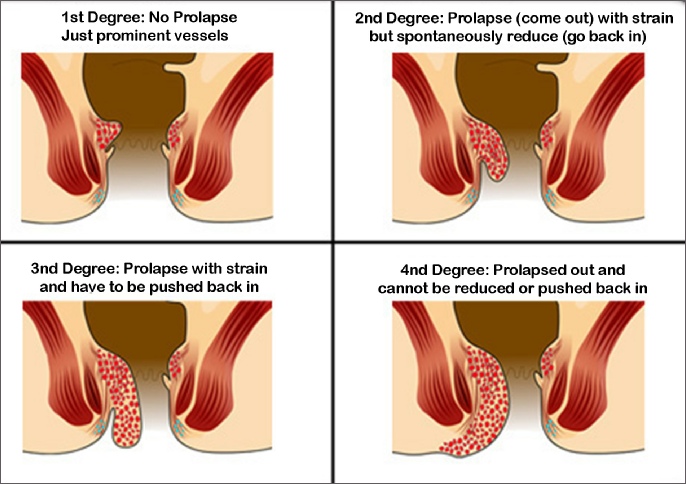Hemorrhoidectomy in Ireland
Search and Compare the Best Clinics and Doctors at the Lowest Prices for Hemorrhoidectomy in Ireland

Find the best clinics for Hemorrhoidectomy in Ireland
No clinics available
Ukraine offers the best prices Worldwide
Price: $ 170

- Home
- Ireland
WHY US?
At Medijump, we're making medical easy. You can search, compare, discuss, and book your medical all in one place. We open the door to the best medical providers worldwide, saving you time and energy along the way, and it's all for FREE, no hidden fees, and no price markups guaranteed. So what are you waiting for?

Free

Best Price

Widest Selection

Risk-Free
What you need to know about Hemorrhoidectomy in Ireland

Hemorrhoidectomy is a surgical procedure to remove severe hemorrhoids or piles (swollen blood vessels inside or around the rectum and anus). This procedure offers a long-term solution for those who suffer from hemorrhoids, especially for those whose hemorrhoids are large, very painful, or bleeding.
What does the Procedure Involve?
Hemorrhoidectomy may be performed under general anesthetic (you’re put to sleep during the surgery) or local anesthetic. The surgery starts by gaining access to the anus, then the hemorrhoids are gently cut out using surgical instruments, such as a laser or surgical scissors. Then the wounds may be sealed with sutures or left open.
How Long Should I Stay in Ireland?
You should be able to leave the hospital on the same day. However, you need to stay in Ireland for around 14 more days or until your doctor says it is okay for you to travel as you should not sit for a long period of time during the recovery period.
What's the Recovery Time?
You may need about one or two weeks off work to recover, but you should not do any strenuous activities such as intense exercises and heavy lifting for about 3 to 6 weeks. The total recovery period may take as long as 6 weeks.
What About Aftercare?
Before you go home after the surgery, your surgeon will give you directions to care for yourself at home, such as taking stool softeners to reduce straining during a bowel movement, taking a Sitz bath, and eating a fiber-rich diet. You need to attend a follow-up checkup to monitor your condition, but you can do it with your local doctor. To prevent hemorrhoid from happening again, you should not delay using the toilet, do not spend too much time on the toilet (such as reading or using your phone in the toilet), and try to eat a diet full of green vegetables, fruit, and 100% whole grains.
What's the Success Rate?
Hemorrhoidectomy is very common and generally safe, but it carries some side effects and risks, pain, bleeding, infection, difficulty urinating, loss of control of the rectal sphincter, damage or narrowing of the anal canal, and allergic reaction to the anesthetic.
Are there Alternatives to Hemorrhoidectomy?
Some cases of hemorrhoids can be treated with over-the-counter medicines as well as a healthy diet and lifestyle. However, if you need further treatment, the alternatives to hemorrhoidectomy are rubber band ligation, sclerotherapy, coagulation, and hemorrhoid stapling. Make sure to discuss with your doctor the best option for your case.
What Should You Expect Before and After the Procedure
Before hemorrhoidectomy, you may experience uncomfortable and painful symptoms that interfere with your daily life. After the surgery, you will no longer experience any of the symptoms and your quality of life will be significantly increased.
Whilst the information presented here has been accurately sourced and verified by a medical professional for its accuracy, it is still advised to consult with your doctor before pursuing a medical treatment at one of the listed medical providers
No Time?
Tell us what you're looking for and we'll reachout to the top clinics all at once
Enquire Now

Popular Procedures in Ireland
Prices Start From $133

Prices Start From $514

Prices Start From $773

Prices Start From $228

Recommended Medical Centers in Ireland for procedures similar to Hemorrhoidectomy

- Interpreter services
- Translation service
- Religious facilities
- Medical records transfer
- Medical travel insurance
- Health insurance coordination
- TV in the room
- Safe in the room
- Phone in the room
- Private rooms for patients available

- Interpreter services
- Translation service
- Religious facilities
- Medical records transfer
- Medical travel insurance
- Health insurance coordination
- TV in the room
- Safe in the room
- Phone in the room
- Private rooms for patients available

- Interpreter services
- Translation service
- Religious facilities
- Medical records transfer
- Medical travel insurance
- Health insurance coordination
- TV in the room
- Safe in the room
- Phone in the room
- Private rooms for patients available

- Interpreter services
- Translation service
- Religious facilities
- Medical records transfer
- Medical travel insurance
- Health insurance coordination
- TV in the room
- Safe in the room
- Phone in the room
- Private rooms for patients available

- Interpreter services
- Translation service
- Religious facilities
- Medical records transfer
- Medical travel insurance
- Health insurance coordination
- TV in the room
- Safe in the room
- Phone in the room
- Private rooms for patients available

- Interpreter services
- Translation service
- Religious facilities
- Medical records transfer
- Medical travel insurance
- Health insurance coordination
- TV in the room
- Safe in the room
- Phone in the room
- Private rooms for patients available

- Interpreter services
- Translation service
- Religious facilities
- Medical records transfer
- Medical travel insurance
- Health insurance coordination
- TV in the room
- Safe in the room
- Phone in the room
- Private rooms for patients available

- Interpreter services
- Translation service
- Religious facilities
- Medical records transfer
- Medical travel insurance
- Health insurance coordination
- TV in the room
- Safe in the room
- Phone in the room
- Private rooms for patients available

- Interpreter services
- Translation service
- Religious facilities
- Medical records transfer
- Medical travel insurance
- Health insurance coordination
- TV in the room
- Safe in the room
- Phone in the room
- Private rooms for patients available

- Interpreter services
- Translation service
- Religious facilities
- Medical records transfer
- Medical travel insurance
- Health insurance coordination
- TV in the room
- Safe in the room
- Phone in the room
- Private rooms for patients available
Hemorrhoidectomy in and around Ireland
Introduction
Ireland, also known as the Republic of Ireland, is a country located in north-western Europe that occupies 26 of 32 counties on the island of Ireland. The country’s breath-taking landscape, wonderful people, and fascinating history have made it an unforgettable destination for many visitors. Aside from its beauty, more and more people also come to Ireland for high-quality healthcare. The country is a newcomer to the medical tourism market. However, it’s seen as an increasingly attractive destination due to the reasonably priced and high standard of clinical care available in the country. Most foreign patients come for cosmetic surgery and dental treatments, but many hospitals and clinics in the country offer a wide variety of services, such as cardiology, pathology, pulmonary, and gynecology. Also, the Joint Commission International has accredited several hospitals in the country, most of which are located in Dublin.
Popular Cities and Regions in Ireland
Ireland’s capital and largest city, Dublin, is the most popular tourist destination within the country. In fact, it’s the fourth most visited European capital. It’s filled with excellent pubs serving the perfect pint of Guinness, amazing Georgian architecture, and layers of fascinating history. Tourists in this city usually visit the Guinness Storehouse Factory, tour the Old Jameson Distillery, admire the Spire of Dublin, explore Dublin Castle, and marvel at the beauty of St. Patrick’s Cathedral. Another famous city is Cork, which is the second-largest city in the country. It’s a youthful cosmopolitan city packed with artisan coffee bars and snug pubs. Tourists usually come to kiss the Blarney Stone for good luck, enjoy the coastal landscape in Mizen Head, or hike around Gougane Barra. Other popular cities and towns include Galway, Killarney, Kilkenny, and Letterkenny.
Transport in Ireland
The main airport in Ireland is Dublin Airport. It connects the country with numerous cities around the world, including New York, Abu Dhabi, and Hong Kong. Trains and buses are available to travel around the country. However, public transportation is generally sparse in rural areas. Therefore, renting a car is the best mode of transport. Taxis and Uber are available to travel inside major cities.
Visas in Ireland
Ireland has opted out of the Schengen Area. The country allows all EU citizens, as well as citizens of 56 other countries (such as the UAE and the US), to stay without a visa for up to 90 days. Citizens of other countries are required to apply for a visa in advance.
Weather in Ireland
Summer (June – September) provides plenty of sunshine and lower levels of rainfall, with an average temperature of 14°C - 16°C. Winter (October – February) is chilly, with ample rainfall and some snow. Spring and autumn are generally pleasant, with warmer temperatures and more sunshine.
Additional Info
- Local Currency: The official currency is the euro. 1 EUR is approx. 1.08 USD.
- Money & Payments: ATMs are easy to find. Credit and debit cards are widely accepted. Tipping is expected in some places, typically 10% for decent service.
- Local Language: There are several languages used in Ireland. English has been the predominant first language since the late 18th century, but Irish is still widely used by a small percentage of the population.
- Local Culture and Religion: The constitution of Ireland guarantees freedom of religion. Christianity is the largest religion. However, Islam, Hinduism, Judaism, Buddhism, Neo-Paganism, and other religions are present.
- Public Holidays: Some of the most celebrated public holidays are New Year’s Day, St. Patrick’s Day, Easter Monday, Christmas Day, and St. Stephen’s Day.
Popular Searches
- Plastic Surgery in Thailand
- Dental Implants in Thailand
- Hair Transplant in Thailand
- Breast Augmentation Thailand
- Gastric Sleeve in Thailand
- Gender Reassignment Surgery in Thailand
- Laser Hair Removal in Bangkok
- Botox in Bangkok
- Dermatology in Bangkok
- Breast Augmentation in Bangkok
- Coolsculpting in Bangkok
- Veneers in Turkey
- Hair Transplant in Turkey
- Rhinoplasty in Turkey
- Stem Cell Therapy in Mexico
- Rhinoplasty in Mexico
- Liposuction in Mexico
- Coolsculpting in Tijuana
- Rhinoplasty in Korea
- Scar Removal in Korea
- Gastric Sleeve in Turkey
- Bone Marrow Transplant in India
- Invisalign in Malaysia
- Plastic Surgery in the Dominican Republic
- Tummy Tuck in the Dominican Republic
- Plastic and Cosmetic Surgery in Poland
- Rhinoplasty in Poland
- Hair Implant in Poland
- Dental Implants in Poland
- IVF in Turkey